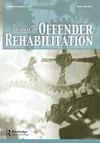沟通守门人和道德仲裁者:父亲被监禁时母亲的角色
IF 1.1
Q3 SOCIAL WORK
引用次数: 2
摘要
摘要虽然研究表明,监禁期间的高质量沟通有助于改善家庭关系,但监狱的安全和教养要求对接触的形式和频率施加了严重限制。我们采访了新加坡监狱系统中父亲被监禁的家庭,以了解他们是如何协商各种形式的受限接触的,以及他们对这种接触的意义。我们发现,家庭倾向于将探访作为玩耍或建立联系的机会,而不是通过严肃的谈话来解决冲突或人际关系问题,这需要更频繁和广泛的对话。写信为后者提供了机会,但内容的筛选阻碍了亲密细节的分享和个人问题的探索。此外,随着母亲们继承了她们角色的意外扩展——作为主要照顾者、被监禁配偶的倡导者和唯一的养家糊口者——她们往往成为事实上的看门人,不仅是与父亲接触和沟通的渠道,而且是父亲道德地位的有力仲裁者。该研究指出,在教养环境中,更以家庭为中心的沟通政策具有重要意义。本文章由计算机程序翻译,如有差异,请以英文原文为准。
Communication gatekeepers and moral arbiters: mothers’ roles when fathers are incarcerated
Abstract While studies show that quality communication during incarceration can contribute to better family relationships, the security and correctional requirements of prisons place heavy constraints on the form and frequency of contact. We interviewed families who have an incarcerated father in the Singapore Prison system to understand how they negotiate the various forms of constrained contact and the meaning they attached to such encounters. We found that families tend to use visitations as opportunities for play or bonding instead of serious talk for working through conflict or interpersonal issues, which require more frequent and extensive dialogue. Letter writing afforded an opportunity for the latter, but the screening of content hindered the sharing of intimate details and exploration of personal issues. Additionally, as mothers inherited an unexpected expansion of their roles—as primary caregiver, advocate for the incarcerated spouse, and sole breadwinner—they tended to become the de facto gatekeeper, not just of access and communication to the father, but also as a powerful arbiter of his moral standing. The study points to the significance of more family-centric communication policies in correctional settings.
求助全文
通过发布文献求助,成功后即可免费获取论文全文。
去求助
来源期刊

Journal of Offender Rehabilitation
SOCIAL WORK-
CiteScore
1.60
自引率
0.00%
发文量
24
期刊介绍:
The Journal of Offender Rehabilitation is a multidisciplinary journal of innovation in research, services and programs in criminal justice and corrections. The journal is an essential professional resource for practitioners, educators and researchers who work with individuals involved in the criminal justice system and study the dynamics of rehabilitation and individual and system change. Original research using qualitative or quantitative methodology, theoretical discussions, evaluations of program outcomes, and state of the science reviews will be considered.
 求助内容:
求助内容: 应助结果提醒方式:
应助结果提醒方式:


